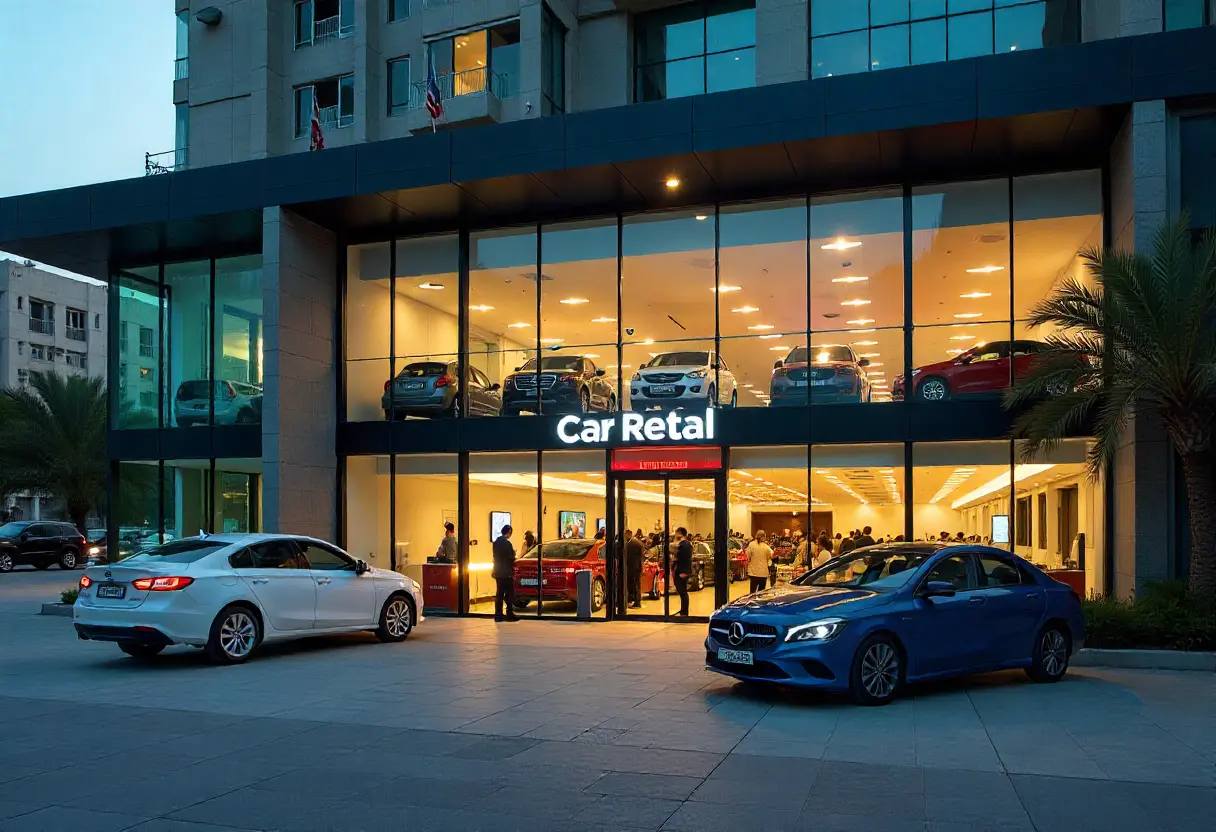The Dubai car rental market analysis boasts that the industry is poised for substantial growth, fueled by tourism, an expanding expatriate population, and the latest digital transformation. As an international hub for business and leisure, Dubai has cemented its position as a force to be reckoned with in the broader UAE automotive rental growth story.
The comfort, freedom, and diversity of car hire options by S Line Edition Car Rental are pushing the market to an impressive projected growth rate. The UAE car rental and leasing market, of which Dubai is the largest contributor, is expected to see a compound annual growth rate (CAGR) well into the double digits towards 2030, revealing its robust future outlook.
The Important Market Drivers: Tourism and Demographics
An important aspect of this growth is the flourishing tourism sector. Millions of international travellers come to Dubai every year, generating massive demand for short-term car hire services of S Line Edition Car Rental to navigate the vast attractions of the city.
Moving forward, the high percentage of expatriates in the UAE prefers renting or leasing cars over outright ownership, valuing the freedom and lower dedication.
This dual demand from both short-term tourists and long-term residents forms a steady and consistently growing customer base for the car hire industry analysis.
The market professionally caters to this demographic split, providing everything from budget-friendly economy cars, the largest segment by volume, to ultra-luxury and exotic cars.
Digital Transition and Smooth Booking Process
The true game-changer in the Dubai car rental market analysis by S Line Edition Car Rental is the embrace of technology.
The industry is transforming from old-age, documentation-heavy processes to fully digital, mobile-savvy models. Online bookings now account for a substantial part of transactions, pushed by customer demand for smooth and immediate services.
User-friendly mobile apps enable rapid comparisons of price, real-time availability checks, e-KYC or know your customer verification, and even keyless entry. This concentration on digital convenience, optimization by AI for personalized recommendations and fraud detection, is not just a trend but a necessity for staying competitive in this fast-moving environment.
The Segments Of Luxury and EV
Dubai’s unusual market is featured by a high-profile luxury segment, which serves as a notable differentiator in a general car hire industry analysis.
The simplification of renting expensive brands like Ferrari, Lamborghini, and Bentley for a short-term period enhances the car rental experience beyond easy transportation into a lifestyle statement.
Coincidentally, the market is strategically aligning with the UAE’s organic goals. Government initiatives supporting electric vehicles (EVs) are pushing rental companies like S Line Edition Car Rental to integrate EVs into their collection of cars.
This dedication to eco-friendly options, partnered by infrastructure development like charging stations, signals a move towards a smarter, greener future for the entire UAE automotive rental growth.
Conclusion
The market, however, remains immensely competitive, with a diverse range of local and global players searching for market share. This high level of competition drives innovation in service models, including adaptable subscription plans and long-term operating leases favored by corporate clients.
As the market grows wider, the successful operators will be those that efficiently utilise technology for operational effectiveness, like S Line Edition Car Rental, continue to optimize the smooth customer experience, and strategically adapt their collection of cars to meet the rising demands for both cost-effective and electric cars.
The Dubai car rental market analysis thus provides a picture of a transforming industry where growth is inherently linked to digital invention and a customer-centric approach.
Frequently Asked Questions
1. What is the projected growth rate of the UAE/Dubai car rental market?
The UAE car rental and leasing market is usually projected to grow at a Compound Annual Growth Rate (CAGR) of around 13.1% from 2024 to 2030, with Dubai expected to hold a dominant market share.
2. Are online or offline bookings more popular?
Online booking platforms are expanding quickly and are projected to capture the largest share of revenue, pushed by smartphone penetration, the capability to compare prices simply, and the comfort of digital transactions.
 English
English French
French German
German Italian
Italian Spanish
Spanish Japanese
Japanese Korean
Korean Russian
Russian Arabic
Arabic